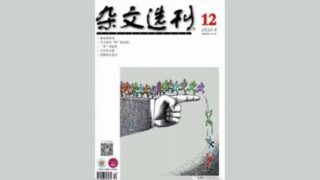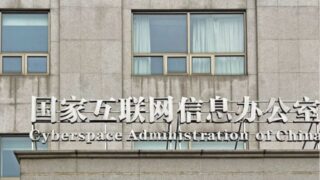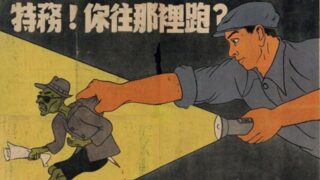The Chinese version of TikTok will implement stricter rules and prohibit “deviant” and “anti-government” discussions. All justified with the fight against teen cyberaddiction.
by Tan Liwei


Here we are. New rules for Douyin, the Chinese version of the video-based social networking service TikTok, are ready, and they promise more control. The matter is not unimportant. Every day, 600 million users access Douyin, and controlling it is like controlling several large Chinese provinces.
As Bitter Winter revealed last week, the QingLang (清朗, “[making the Internet] cleansed and uncontaminated”) campaign, launched personally by Xi Jinping, is targeting the large social media, one of the few places where some independent comments may still be posted in China, although to a limited extent. Xi has personally commented that these media are not controlled enough and are in a situation of “chaos,” which should be urgently rectified.
Bitter Winter also denounced how propaganda tries to make these regulations palatable to netizens by claiming they are needed to protect teenagers from cyberaddiction. Since cyberaddiction is a real problem in China, the measures are presented as necessary. Indeed, some parents on social media express approval of the regulations. They comment that they are unable to control what their children do when they are online, “so control from outside is welcome,” as a father put it.
Others, however, understand that once your home computer is kept under watch by the authorities, they will watch you 24/7 and will intervene not only when your 13-year-old child spends too much time playing online games but also when you tell your friends that the CCP is making mistakes or try to access websites the Party does not like.
The rules for Douyin coming into force this month of March follows the same scheme. It is claimed that they are needed to prevent minors from being harmed by cyberaddiction, unscrupulous video game companies, and the inordinate passion for celebrities, expressed through fan clubs, to which teenagers devote an inordinate amount of time. To achieve these laudable aims, however, broad rules are enacted that in fact control and forbid a good number of activities that have nothing to do with teen cyberaddiction.
Section 1 of the new rules is indeed about minors, but it includes a provision that “promoting bad-value-oriented content to minors” is prohibited. The notion of “bad values” is both vague and broad, and is normally interpreted in China to include anything that is not approved by the CCP.
While Section 2 prohibits artificially enhancing the number of followers, Section 3 proscribes flame wars—but also forbids spreading “deviant” and “confusing” information. Section 4 prohibits “intentionally creating trouble” (故意制造事端), a wording suspiciously close to the formula “picking quarrels and provoking trouble” (寻衅滋事) of Article 293 of the Chinese Criminal code, which is normally used to punish dissidents.
Articles 5 and 6 hit fan clubs, which are prohibited among other things from “interfering with the normal work of government agencies.” Even broader is Article 7, which “prohibits violations such as creating or promoting aberrant aesthetic contents, subverting traditional moral values, featuring absurdity and parody, and carrying out misplaced, exaggerated, bizarre and unconventional content.” Almost everything can be prohibited under this article.
Articles 8 and 9 prohibits sexual or violent content in videogames and other games, and Article 10 prohibits high-pressure sales techniques, but even here there is a reference to “any other violations that may disturb public order and endanger public safety,” which confirms the intent to use formulas that are so broad that anything the regulators do not like can be banned.
It is certainly possible that the new Douyin rules will have some positive effect in combating teen cyberaddiction and exploitation of minors by videogaming and other companies. But to achieve this aim the rules ask Douyin to examine the content of videos, and censor those that are “deviant,” “unconventional,” “confusing,” and even “aesthetically aberrant” or “subverting traditional moral values.”
It does not take a conspiracy theorist to understand that this means any video the CCP does not approve of.









